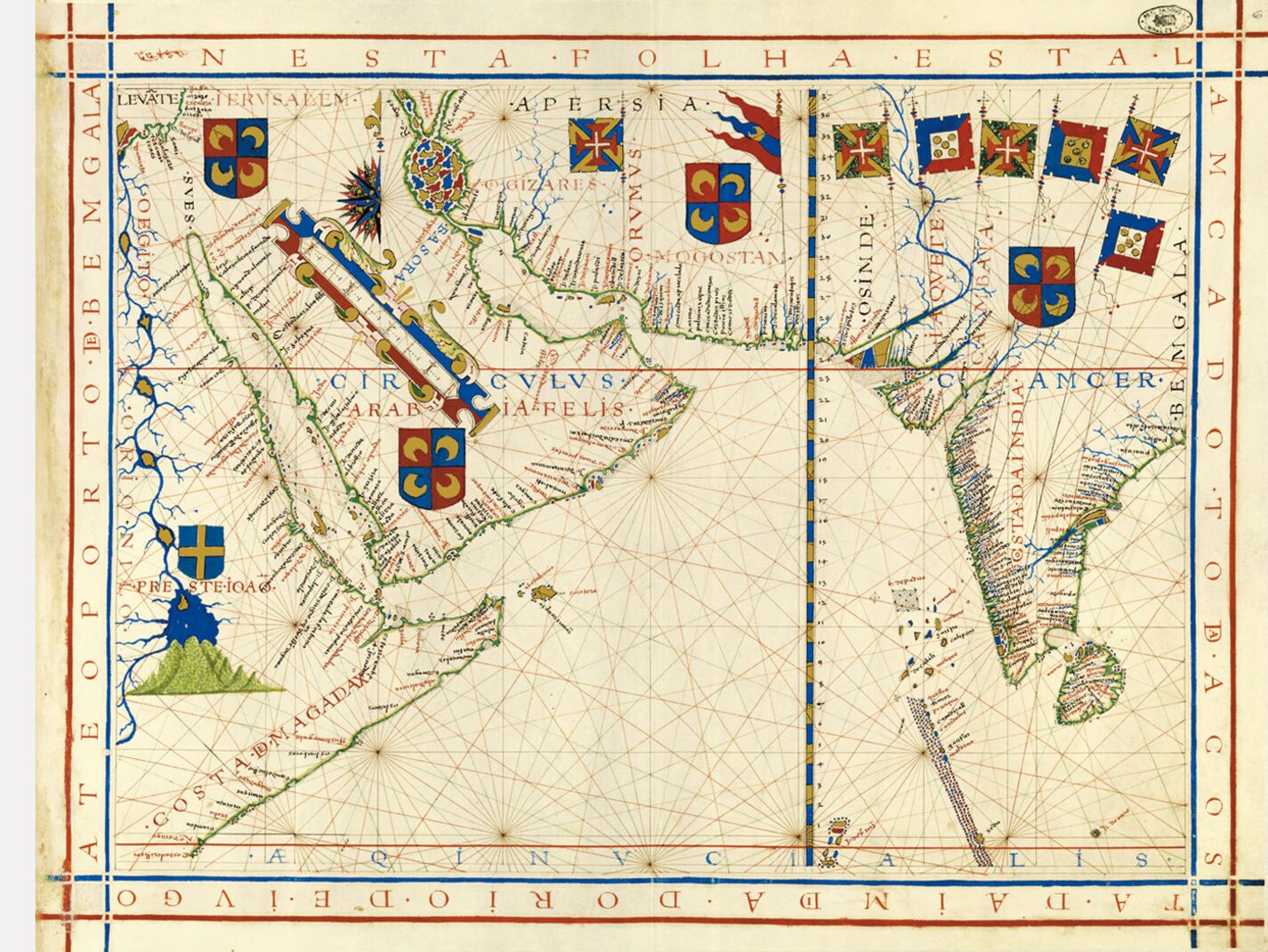Map No. 6. Arabia and the Indian Ocean
Based on the Equator, the map is built around the western Indian Ocean, depicting coasts from Somalia to the centre of the Bay of Bengal, including the Red Sea and the Persian Gulf.
Diverse important geographic elements can be seen in interior continental regions. Foremost amongst these is the course of the Nile, with its lakes, tributaries and islands, from its source in a large lake, near a high mountain, at the heart of the empire of “Prester John”, up to the Nile delta in Lower Egypt. Secondly, the map portrays the territory of Mesopotamia, between the Tigris and the Euphrates, identifying the location of Baghdad, on the shores of a large interior gulf dotted with islands, and Basra, at one end of the Persian Gulf. A third important feature is the course of the Indus River and the Gujarat Peninsula. A fourth noteworthy element is the dense and extensive chain of islands comprising the Maldives archipelago, with a NW-SW alignment, and, slightly further north, the Lakshwadeep archipelago, near the Malabar coast. The fifth significant feature is the detail of the representation of Ceylon, which appears as a reduced version of the large-scale map of the island that Vaz Dourado included in his 1568 Atlas (f. 13).
The presence of the Muslim world throughout Southwest Asia is represented by flags and shields in the Middle East, on the Arabian Peninsula, in Pakistan and in Iran. In Africa only the coat of arms of Prester John (a golden cross on a blue background) evokes that isolated Christian kingdom. Seven flags of the Order of Christ and Portugal are arrayed over the top of the map, in strategic locations: in Hormuz, at the entrance to the Persian Gulf, and along the western coast of India – Diu, Bassein, Surat, Goa, Honawar/Anjediv and Cochin – where the Portuguese presence was more intense, likewise due to the construction of important fortresses.
João Carlos Garcia
Faculdade de Letras, Universidade do Porto
(Fragment of the Universal Atlas of Fernão Vaz Dourado commentary volume)
